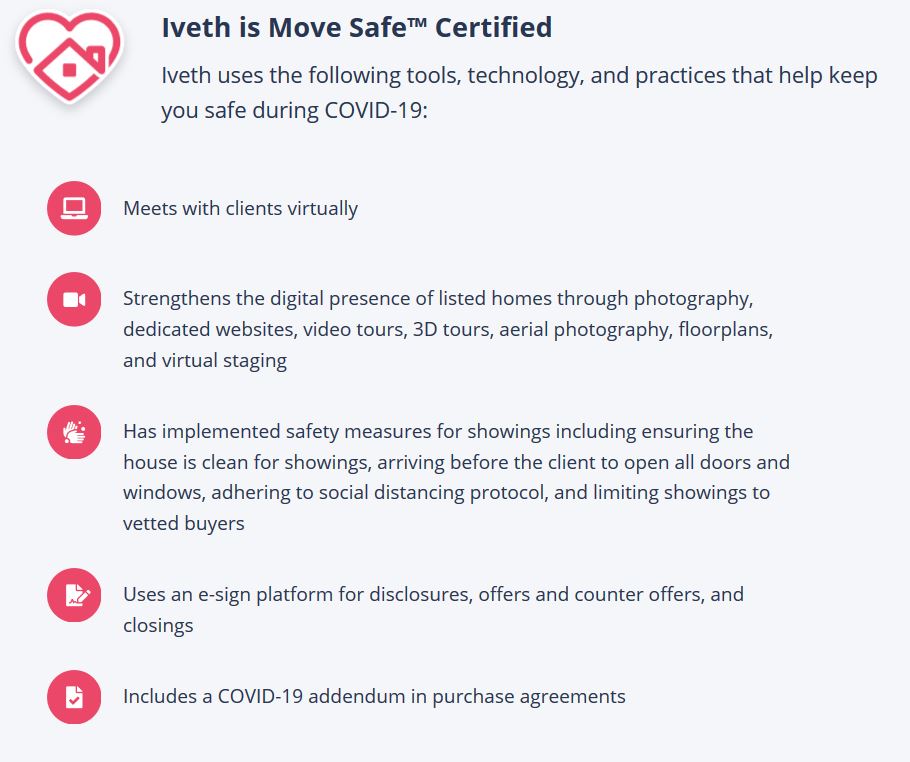|
Like in the movies, this is the iconic moment — we’d forgive you if you imagined, say, putting a hand on your agent’s shoulder and whispering (in your best Vito Corleone) that you’re going to make them an offer they can’t refuse.
In reality, it’s not that simple (or dramatic). Your offer marks the beginning of a back-and-forth between you and the seller, typically with real estate agents advising you both. The more intentional you are about your offer, the better your chances of making a successful bid. Follow these 10 steps, and you’ll be well prepared. #1 Know Your Limits Your agent will help you craft a winning offer. You can trust your agent’s advice on price, contingencies, and other terms of the deal: It’s a mutually beneficial relationship. The more collaborative you are with your agent, the more quickly you’ll be able to move. But ultimately, it’s you who decides what the offer will be — and you who knows what your financial and lifestyle limits are. Buying a home means mixing strong emotions with business savvy, so now is also a good time to reflect on your “musts.”
#2 Learn to Speak “Contract” Essentially, an offer is a contract. If you’re in doubt a real estate attorney can explain the documents to you so you’re familiar with their vocabulary when you’re ready to pull the trigger on an offer with your agent. Your agent will have offer forms for your state. #3 Set Your Price Homes always have a listing price. Think of it as the seller’s opening bid in your negotiation to buy a home. As the buyer, your offer will include an offer price. This is the first thing home sellers look at when they receive a bid. Your agent will help you determine whether the seller’s listing price is fair by running comps (or comparables), a process that involves comparing the house you’re bidding on to similar properties that recently sold in the neighborhood. Several factors can also affect your bargaining position and offer price. For example, if the home has been sitting on the market for a while, or you’re in a buyer’s market where supply exceeds demand, the seller may be willing to accept an offer that’s below the list price. Or if the seller has already received another offer on the home, that may impact the price you’re willing to offer. Your agent will help you understand the context here. #4 Figure Out Your Down Payment To get a mortgage, you have to make a down payment on your loan. For conventional loans (as opposed to government loans), making a 20% down payment enables borrowers to avoid having to pay private mortgage insurance (PMI), a monthly premium that protects the lender in case the borrower defaults on the loan. But 20% isn’t always feasible — or even necessary. In fact, the median down payment in 2019 for buyers overall was 16 percent, and 6 percent for first-time buyers, according to the National Association of REALTORS®. Your lender will help you determine what the best down payment amount is for your finances. Depending on the type of loan you get, you may even be able to put down as little as 0% on your mortgage. You might qualify for one of the more than 2,400 down payment assistance programs nationwide. Many of them make funds available to households earning as much as 175% of area median income. In other words, middle-income households. And the savings can be substantial: Home buyers who use down payment assistance programs save an average of $17,766 over the life of their loan, according to real estate resource RealtyTrac. Find out more about down payment assistance programs in your state. You can use an online mortgage calculator to see how different down payments would affect your mortgage premiums and how much you’ll pay in interest. Ask us about our lender partners. #5 Show the Seller You’re Serious: Make a Deposit An EMD — short for earnest money deposit — is the sum of money you put down as evidence to the seller that you’re serious (read: earnest) about buying the house. If the seller accepts your offer, the earnest money will go toward your down payment at closing. However, if you try to back out of the deal, you might have to forfeit the cash to the seller. A standard EMD is 1% to 3% of the sales price of the home (so, that would be $2,000 to $6,000 on a $200,000 loan). But depending on how hot the market is where you live, you may want to put down more earnest money to compete with other offers. In most cases, the title company is responsible for holding the earnest money in an escrow account. In the event the deal falls through, the title company will disperse the funds appropriately based on the terms of the sales contract. Title companies also check for defects or liens on a seller’s title to make sure it can be transferred cleanly to you. #6 Review the Contingency Plans Most real estate offers include contingencies — provisions that must be met before the transaction can go through, or the buyer is entitled to walk away from the deal with their EMD. For example, if an offer says, “This contract is contingent upon a home inspection,” the buyer has a set number of days after the offer is accepted to do an inspection of the property with a licensed or certified home inspector. If something is wrong with the house, the buyer can request the seller to make repairs. But most repairs are negotiable; the seller may agree to some, but say no to others. Or the seller can offer a price reduction, or a credit at closing, based on the cost of the repairs. This is where your real estate agent can offer real value and counsel on what you should ask the seller to fix. Just remember to keep your eye on the big picture. If you and the seller disagree over a $500 repair to the hardwood floors, keep in mind that’s a drop in the bucket in relation to the size of the bid. In addition to the aforementioned home inspection contingency, other common contingencies include:
In other words: A chill offer is an attractive offer. But keep in mind you have to be comfortable with the risks that come with this strategy. If you don’t have a financing contingency, for example, and you can’t get a mortgage, you’d likely lose your earnest money deposit since you’re on the hook. #7 Read the Fine Print About the Property The sales contract states key information about the property, such as the address, tax ID, and the types of utilities: public water or private well, gas or electric heating, and so on. It also includes a section that specifies what personal property and fixtures the seller agrees to leave behind, like appliances, lighting fixtures, and window shades. The seller provides prospective buyers with a list of these items before they submit an offer. This can be another area of negotiation. Carefully reviewing the property description also helps you know, for example, if the seller plans to take that unattached kitchen island with them when they move. (Stranger things have happened.) #8 Make a Date to Settle The sales contract you submit to the seller must include a proposed settlement date, which confirms when the transaction will be finalized. The clock starts as soon as the purchase agreement is signed. If you don’t close on time, the party that’s responsible for the delay may have to pay the other party compensation in the form of “penalty interest” at a predetermined rate. A 30- to 60-day settlement period is common because it gives the typical home buyer time to complete a title search and obtain mortgage approval, but settlement periods can vary. Some sellers, for example, prefer a longer period so they have more time to move or look for their next house. Being flexible, with respect to the closing date, could give you more negotiating power in another area of the deal. One thing that’s the same no matter where you live is that you’ll have a three-day period prior to settlement to review the Closing Disclosure, or CD — a five-page form that states your final loan terms and closing costs. Once the sales contract is signed, the parties can change the settlement date if they both sign an addendum specifying the new day. #9 Write a Fan Letter to the Seller Want to make a truly compelling offer? Pull on the seller’s heartstrings by attaching a personal letter to the bid documents. Tell a compelling story about your family and your connection to the area. Get deep about your roots. Also, sincere flattery can go a long way. Compliment the seller on how their kitchen renovation looks, for instance, or how the succulents in their landscaping remind you of a resort. The objective is to write a message that really speaks to the seller, and it may very well seal the deal. #10 Brace Yourself for a Counteroffer If you’re making a low ball bid or going up against multiple offers, the seller may decide to make you a counteroffer — a purchase agreement with new terms, such as a higher sales price or fewer contingencies. At that point, it’s up to you to accept the new contract, make your own counteroffer to the sellers, or walk away. Don't panic, your real estate agent it's there to guide you. Whether you want to buy or sell a home locally or globally, I can help you finding or selling your home so you can create the life you love! ☎️ 706.530.1114 or email us. Have a great day! Iveth Caruso Comparing home mortgages can be complicated. But you don’t need a finance degree to make an informed decision. Here are some steps to help you get there.
Look for lenders to consider:
During your first conversation, you and the loan officer will usually ask each other questions, and the loan officer will use that information to assess your situation. That may sound cut and dried, but the meeting should be fluid based on what you’re ready to do. Scope out the lender’s communication strategy and their process for delivering on time. Ask questions like:
Misconception: Thirty-eight percent of buyers think comparing multiple mortgage offers in a short time will hurt their credit rating, according to a 2020 LendingTree survey. But as long as the lenders all pull the borrower’s credit within a couple of weeks, it’s counted as a single credit inquiry. It is not problematic if they do it within a narrow window of time. Compare the financial information located on the loan estimate form. You’ll want to drill down to origination charges in the lender section. Make sure you’re comparing apples to apples. If one lender is offering a 30-year fixed rate at 2.875% with no lender fees and another is offering 2. 75% with $1,500 in lender fees, those are unlike products. Get the fees at the same rate to find out who’s less expensive. Comparison shopping can get complicated. Here are six ways to simplify the process. 1. Keep Your Pool Manageable Mortgage shopping depends on the borrower and the personality type and how they’re work. The process can seem overwhelming. That’s why it makes sense to have a select few options to compare so borrowers can process and assimilate them. 2. Get a Fees Worksheet The best way to compare effectively is to zero in on the fees worksheet, which the loan officer should provide. Then you can figure out just what the lender’s direct fees are, and you can make a nice, simple comparison. 3. Understand a Fees Worksheet Versus a Loan Estimate Keep in mind that the numbers on the worksheet are estimates and not locked in. Interest rates are fluid and change daily. On the other hand, after you have a contract with a seller, the loan estimate and loan application are where the information is binding barring structural changes to the loan. Make sure the information reflects previous discussions with and disclosures by the loan officer. 4. Be Careful Interpreting Third-Party Fees Third-party fee estimates are included on the worksheet. Two lenders could each come up with different estimates for title, escrow, or appraisal fees. But not all are negotiable. For instance, the seller chooses the title company, so the lender doesn’t control the choice or the fees. The lender could be choosing the high or low end of a range, but it’s only an estimate. 5. Think About Timing Make sure lenders are using the same time frame for locking in pricing and that it will extend through the closing. 6. Always Apply for Loan Approval Before Finding a Property But some lenders will allow borrowers to go through the formal underwriting process — not just preapproval — without having a property. The borrowers can get a bona fide mortgage commitment with all of the major buyer financials truly underwritten at that point. Then when borrowers make an offer, they can close more quickly. You'll have to invest some time and effort into comparison shopping for a mortgage loan and selecting a lender and a loan officer. But your return on investment can pay off over the long haul. Whether you want to buy or sell a home locally or globally, I can help you finding or selling your home so you can create the life you love! ☎️ 706.530.1114 or email us. Have a great day! Iveth Caruso Falling in love is exhilarating. It can also be a bit scary, especially when a home has captured your heart. What if something goes wrong and you end up not spending the rest of your life with this stack of brick and mortar you're lusting after?
No matter how careful you are, some deal killers are unavoidable. Others, however, are preventable, so pay heed if you hope to keep your deal alive. 1. Don't Mess with Your Mortgage Preapproval A common reason for a real estate deal to fall apart is that many homebuyers don't fully understand the mortgage process. Sure, you may get a loan preapproval, but don't think for one minute that this guarantees you will get the loan. It doesn't. Here's what happens after you receive your preapproval letter and decide to move forward with the purchase. The lender will start your file, give you a list of paperwork required, order an appraisal and credit reports, verify your employment and income, and more. The file is then sent to the processor who will review all of your information as well as the appraisal. He or she will then put together a package of all pertinent information to be sent to the underwriter. The underwriter is the person who ultimately determines whether or not you are an acceptable credit risk. He or she will assess your ability to repay the loan, your credit, and the collateral used to secure the mortgage - in this case the collateral is the home. Then, just before funding the loan, the underwriter will perform what is known as a "soft pull" of your credit information to see if anything has changed. This is the point where many borrowers run afoul. If you hope to keep your purchase alive, don't do anything - from application to closing - that might change your financial picture and sabotage your final approval. This means no shopping on credit for appliances, furniture or anything else. Don't switch jobs, fall behind on your bills, co-sign a loan for anyone, or in any way reduce the income stated on your application. 2. Read Homeowners Association Documents Carefully When you purchase a home in a managed community governed by a homeowners association (HOA), you'll be given a mountain of paperwork to read and approve. Because there may be deal killers included in the fine print, it's important to get to this task immediately upon receipt of the documents. Look for any information about liens against the property; current litigation against the HOA, the builder, or the developer; and any red flags in the HOA budget. Since these documents aren't easy to read and understand, it is worth the money you'll spend to have your attorney look them over and advise you of any potential deal killers lurking within. While the aforementioned HOA problems could potentially derail the deal, it's better to have it happen upfront rather than when you're further along in the process. 3. Home Inspection Problems All homes - even newly constructed ones - may have problems. Going into the process not fully understanding this can set you up for a failed real estate deal. Sure, you ideally want to find a home that was owned by Mr. or Mrs. Clean who conscientiously took care of it during their entire ownership, but those are few and far between, and seeking them out is unrealistic. Set your sites on finding a home that has small, easy-to-fix problems, and don't freak out if some are worse than others. In other words, when considering making an offer, laugh at the loose doorknob but negotiate when it comes to water damage or worse. The nitpicky homebuyer, who plans on nickel and diming the homeowner into replacing missing switch plates and dripping faucets, is the picture of a deal-breaker-in-the-making. Sure, in a buyer's market you may get away with minor demands. In a seller's market, however, there is always a cleaner offer right behind yours. 4. Budgeting Blunders The real estate industry does a bang-up job of reminding homebuyers that they'll need a down payment - typically from 3 percent to 20 percent of the total loan amount - when they purchase a home. What they often fail to inform real estate consumers about are the loan's closing costs - the money you will be required to pay before the house is yours. This is most likely because closing costs are a little harder to pin down. They vary wildly and depend on the type of loan, the amount of the down payment, and a host of other factors. Unfortunately, this lack of information frequently causes real estate deals to disintegrate. To avoid this particular problem, pay attention to all communications from your lender. First, you will receive a form called a Loan Estimate. Look this over carefully to ensure that everything your lender agreed to is included. Pay close attention to the "Calculating Cash to Close" section, which concludes with an estimated cost to close the loan. Remember, this is an estimate and the amount may go higher or lower in the end. Speak with the lender if you find any problems here, especially if it will be impossible for you to come up with this money. Just before closing you will receive the "Closing Disclosure," which is quite similar to the estimate, but these figures are final. Again, review the "Cash to Close" figure. By and large, real estate deals conclude successfully. Typically, it all comes down to the experience of your agent. Choose wisely and you'll avoid the common pitfalls that can derail transactions. For a smooth, low-stress real estate transaction, slow down, keep your expectations realistic and heed the advice of your real estate agent or attorney. When you’re shopping for a home, it can feel like you’re hemorrhaging money. You’ve got all sorts of things to pay for, from loan application fees to home inspections, so when the issue of earnest money comes up unexpectedly, it can be a “slam on the brakes” moment. Now that the days of low to no down payments are largely past and markets everywhere seem to be running thin on inventory, earnest money may well be the most important negotiating tool you’ve never heard of. What Is Earnest Money? When you make an offer on a home, part of that offer can include a little show of good faith on your part, in the form of cold, hard cash. Generally, one to three percent of the offer price is pretty normal for an earnest money deposit, but this can vary pretty widely based on market conditions. And the more you put up, the better. But what happens to that money? Earnest money is literally just a show of faith. When you go to the closing table, it becomes part of your cash to close equation, which includes other line items like your down payment, your closing costs, and your prepaid items. It’s not a bribe or an extra fee to convince a seller to sell to you. It will simply be applied in full as a credit in your closing documents, reducing the amount of money you need to bring with you on the big day. Here’s the one kicker. If you were to decide to back out of the contract with no real cause, the seller may be entitled to some or all of that earnest money. However, plenty of situations exist where you may not be able to close, but your earnest money will be refunded, such as:
What Is an Earnest Money Note?In some markets, you may have an additional option for earnest money, known as an earnest money promissory note. This is essentially an IOU that accompanies the offer. On the note, you’ll specify exactly when you’ll either turn the paper into actual cash or forfeit the offer entirely. Though these were once very common, they’re far less so today. If you choose to use an earnest money promissory note, be sure to describe in great detail why you’re not able to provide earnest money on the spot and how you will remedy this.
For example, if you have some stocks you were going to cash out for your down payment, but didn’t want to touch until you were really ready, you may need time to sell enough to cover the earnest money. In that case, specify this as the reason and say that you’ll initiate a sale on a certain day, then convert the note on that day. Make sure to leave yourself a little leeway, because if you fail to perform, you can suffer serious consequences. Generally speaking, earnest money promissory notes can be considered a sign of a weak offer, but this varies from offer to offer and market to market and you should inquire before taking that leap. Whether you want to buy or sell a home locally or globally, I can help you finding or selling your home so you can create the life you love! ☎️ 706.530.1114 or email us. Have a great day! Iveth Caruso  If you're thinking about buying a house right now, you're probably wondering how best to go about it. The truth is, you can still do in-person tours in some places, depending on the local regulations, but many people are buying homes right now without stepping foot inside until the deal is done. Sight unseen deals are nothing new, but up until recently they were used mostly for foreign buyers, investors, or long-distance home shoppers. These types of remote deals have become more mainstream in the wake of the COVID-19 pandemic, and there's evidence to suggest they're more than a passing trend. A survey from 2018 showed that about 20% of homebuyers had made an offer on a home without seeing it first. A more recent, COVID-19-influenced survey, found that 45% of homebuyers in the last year had made an offer without seeing the property in person. In April of this year, Realtor.com found that "24% of 1,300 consumers surveyed said they'd be willing to buy a home without first seeing it in person." If you're considering purchasing a home sight unseen, keep these tips in mind: Work with the right agent If you're buying a house without touring it first, you have to depend on your agent to be your eyes and ears. It's crucial that you go with a local expert, especially if you aren't super familiar with the area. Take advantage of technology Online listings with 3D home tours are up by more than 600% since the pandemic hit. Listings that have this functionality are likely to rise to the top because they give you a better feel for the home. Remember, whether you're looking at a carousel of images or a 3D tour, don't forget to ask your agent to go a step further. "Once you know which homes you're most interested in, have your agent book some showings and take you along on the tour using FaceTime," said HomeLight. Being able to view the property with someone in real-time will allow you to ask questions while getting an understanding of the "flow" of the home. Then, ask for a floorplan Today, you're more likely to find home listings that include a floorplan image. If you don't see one, make sure to ask. While video tours offer an understanding of how a home feels, a detailed floorplan helps you ensure it measures up to your needs. Knowing the full layout of a home will give you some insight on what day-to-day life will be like. For example, watching a video tour might not reveal the fact that the new home office you're excited about shares a wall with a noisy laundry room. Also, being able to quickly reference dimensions will allow you to imagine how you and your furniture will fit into the new space. Order an appraisal and a home inspection Even in cases where they're not required, you don't want to skip these steps. Especially when you can't or don't want to tour a home yourself, having expert and objective documentation regarding the value and condition of the home is more important than ever. Whether you want to buy or sell a home locally or globally, I can help you finding or selling your home so you can create the life you love! ☎️ 706.530.1114 or email us.
Have a great day! Iveth Caruso |
Categories
All
The information on this site is intended to be a free resource to provide general information to the public. The information is intended to supplement instruction from your legal, financial or real estate adviser. The information contained on this site should never be taken as a substitute for legal or financial advice from a licensed professional.
Archives
October 2021
|
Cell: 706.530.1114
Iveth Caruso Real Estate™ ©2017 All rights reserved. LoKation Real Estate is licensed in Georgia
Your Home, Your Dream, My Mission!
God, Family, then Business.







